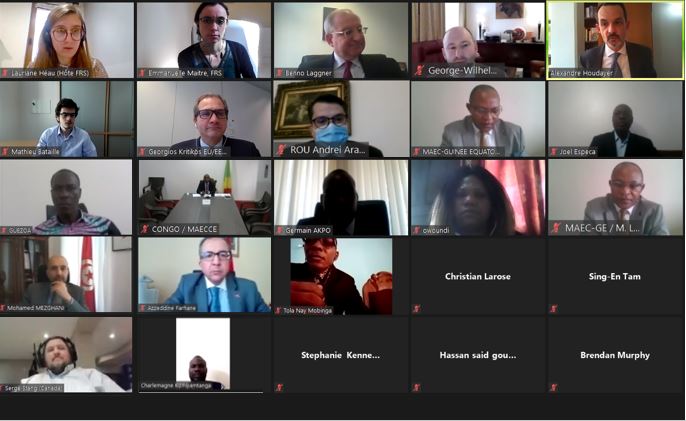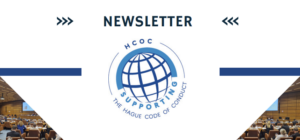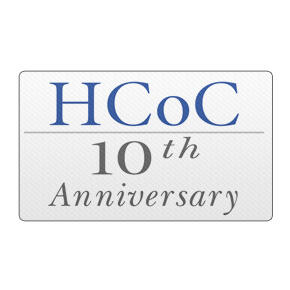Virtual seminar dedicated to French-speaking countries
(in French)
31 March 2021
Virtual
Le 31 mars 2021, la FRS a organisé un séminaire virtuel en français à destination des Etats membres de la Francophonie. Une quarantaine de diplomates et d’experts ont participé à cet événement, représentant 20 pays.
AGENDA
INTRODUCTION & MOT D’ACCUEIL
- Alexandre HOUDAYER, Secrétaire général, FRS
- Georgios KRITIKOS, Chef de division adjoint, Désarmement, non-prolifération et contrôle des exportations d’armes, Service européen pour l’action extérieure, Union européenne
- Amb. Benno LAGGNER, Représentant résident auprès de l’AIEA et Représentant permanent auprès de la Commission préparatoire de l’OTICE, Suisse, Président du HCoC 2020-2021
I/ Le HCoC: PRINCIPES & FONCTIONNEMENT
MODÉRATEUR :
- Alexandre HOUDAYER, Secrétaire général, FRS
INTERVENANTS :
- George-Wilhelm GALLHOFER, Représentant du Secrétariat exécutif du HCoC, Ministère des Affaires étrangères, Autriche
- S.E.M Azzeddine FARHANE, Représentant permanent du Royaume du Maroc auprès des organisations internationales à Vienne
- Alexandre HOUDAYER, Secrétaire général, FRS
THÈMES ABORDÉS :
- Principales dispositions du Code
- Mise en œuvre pratique du Code par les États membres
- Retour d’expérience des États signataires
II/ POURQUOI SOUSCRIRE AU HCoC?
MODÉRATEUR :
- Emmanuelle MAITRE, Chargée de recherche, FRS
INTERVENANTS :
- Amb. Benno LAGGNER, Représentant résident auprès de l’AIEA et Représentant permanent auprès de la Commission préparatoire de l’OTICE, Suisse, Président du HCoC 2020-2021
- Luis ASUMU MBA MEDJA, Point focal CEEAC/UNSAC, Ministère des relations extérieures et de la coopération, Guinée équatoriale

THÈMES ABORDÉS :
- Contribution du Code à la sécurité internationale
- Bénéfices liés à la souscription au Code
- Insertion dans les priorités nationales de non-prolifération et désarmement
III/ LE HCoC & LES ENJEUX DE PROLIFÉRATION DES MISSILES BALISTIQUES & DE DÉVELOPPEMENT SPATIAL
MODÉRATEUR :
- Lauriane HÉAU, Responsable des projets européens, FRS
INTERVENANTS :
- Emmanuelle MAITRE, Chargée de recherche, FRS
- Mathieu BATAILLE, Chercheur, Institut européen de politique spatiale (ESPI)
THÈMES ABORDÉS :
- Comment limiter les risques liés à la prolifération des missiles balistiques ?
- Le HCoC et le développement de programmes spatiaux
PROPOS CONCLUSIFS


